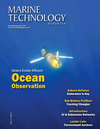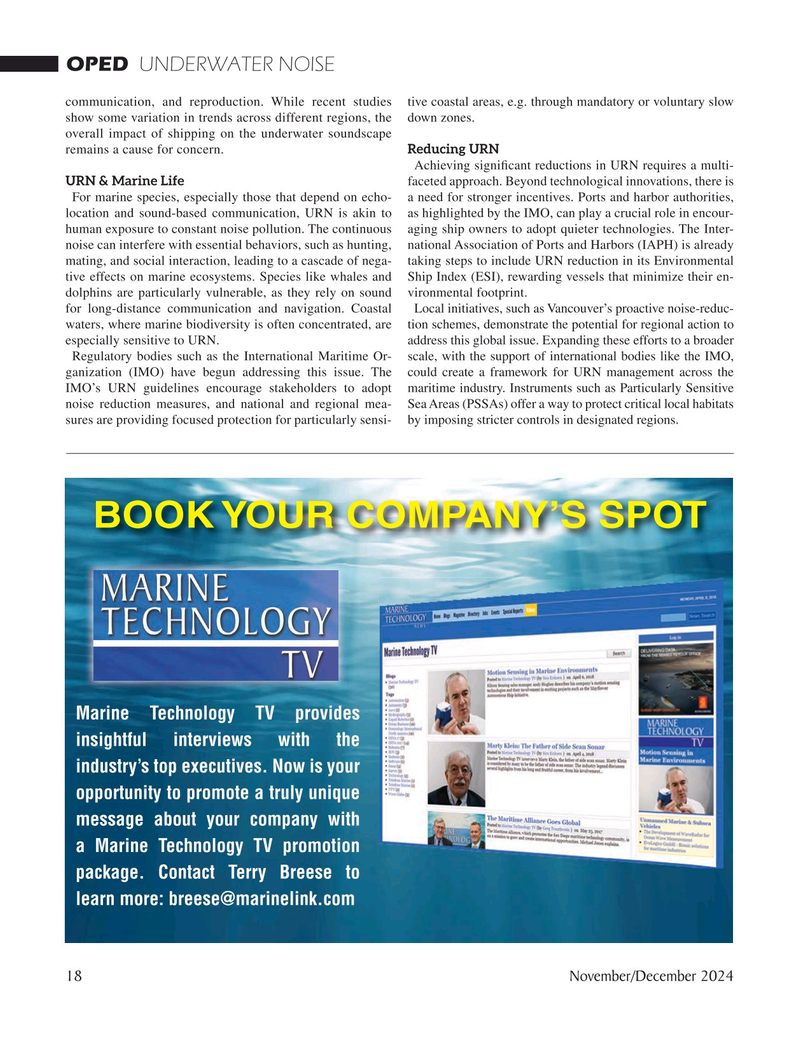
Page 18: of Marine Technology Magazine (November 2024)
Read this page in Pdf, Flash or Html5 edition of November 2024 Marine Technology Magazine
OPED UNDERWATER NOISE communication, and reproduction. While recent studies tive coastal areas, e.g. through mandatory or voluntary slow show some variation in trends across different regions, the down zones. overall impact of shipping on the underwater soundscape remains a cause for concern. Reducing URN
Achieving signi? cant reductions in URN requires a multi-
URN & Marine Life faceted approach. Beyond technological innovations, there is
For marine species, especially those that depend on echo- a need for stronger incentives. Ports and harbor authorities, location and sound-based communication, URN is akin to as highlighted by the IMO, can play a crucial role in encour- human exposure to constant noise pollution. The continuous aging ship owners to adopt quieter technologies. The Inter- noise can interfere with essential behaviors, such as hunting, national Association of Ports and Harbors (IAPH) is already mating, and social interaction, leading to a cascade of nega- taking steps to include URN reduction in its Environmental tive effects on marine ecosystems. Species like whales and Ship Index (ESI), rewarding vessels that minimize their en- dolphins are particularly vulnerable, as they rely on sound vironmental footprint.
for long-distance communication and navigation. Coastal Local initiatives, such as Vancouver’s proactive noise-reduc- waters, where marine biodiversity is often concentrated, are tion schemes, demonstrate the potential for regional action to especially sensitive to URN. address this global issue. Expanding these efforts to a broader
Regulatory bodies such as the International Maritime Or- scale, with the support of international bodies like the IMO, ganization (IMO) have begun addressing this issue. The could create a framework for URN management across the
IMO’s URN guidelines encourage stakeholders to adopt maritime industry. Instruments such as Particularly Sensitive noise reduction measures, and national and regional mea- Sea Areas (PSSAs) offer a way to protect critical local habitats sures are providing focused protection for particularly sensi- by imposing stricter controls in designated regions.
BOOK YOUR COMPANY’S SPOT
Marine Technology TV provides insightful interviews with the industry’s top executives. Now is your opportunity to promote a truly unique message about your company with a Marine Technology TV promotion package. Contact Terry Breese to learn more: [email protected] 18 November/December 2024
MTR #8 (18-33).indd 18 11/20/2024 10:59:40 AM

 17
17

 19
19
